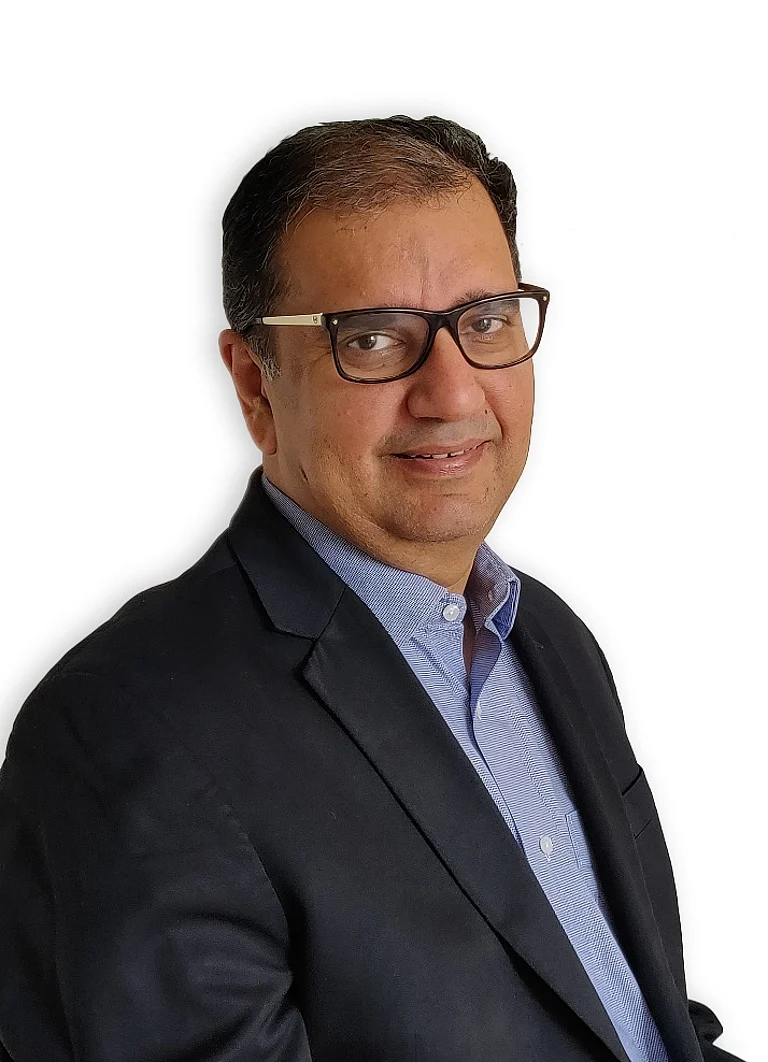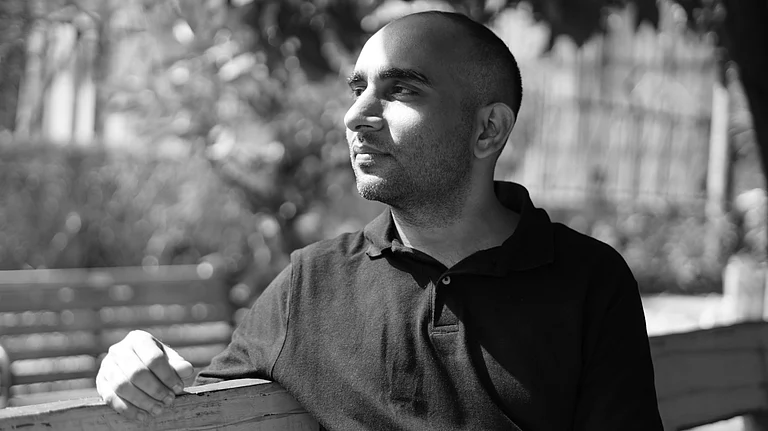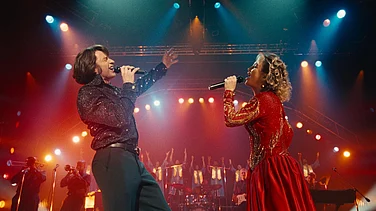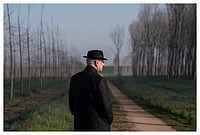
Aakash Chhabra premiered his latest short film, Warm Shadows (Nighiyaan Chhavan), at DIFF 2025.
It stars Sheeba Chadha and Lakshvir Saran as a mother-son pair arriving at a realisation.
Chhabra's earlier films have also played at Dharamshala film fest.
Premiering at the Dharamshala International Film Festival 2025, Aakash Chhabra’s new short film, Warm Shadows/ Nighiyaan Chhavan, is a tiny, expansive gem. Drawing from the very quintessence of the format, this doesn’t so much burrow as it streams through layers, years and cross-currents of secrets and repression. Epiphanies arrive unbidden. Perspectives splay open. People express between the shards of everyday, sustained weight of living. The mother, Priya (Sheeba Chadha), mentions the exhaustion of having lived a life. Her twenty-something son, Raag (Lakshvir Saran), discovers its amplitude only later. Opening with a wide spatial separation between the mother and son, Warm Shadows drifts through the memory of a relationship, the tilting prism of it. How one has seen it, approximated it in a particular way, is very much slanted through what often suits them comfortably. In the film, a long-held façade drops guard, searching for and wishing the other gauges one’s disclosure.

As with Chhabra’s earlier short, Mintgumri (2021), a great, quiet surge of evocation leaks through the most mundane moment. Saran’s Raag walks over from that film to this. Or is it a different Raag? Chhabra keeps loose the association-making. While Mintgumri riffled through Raag’s extended family, his grandparents, Warm Shadows loops back to his parents’ marriage, notions around which are spliced open. Memory is a recurring shadow. While Mintgumri summoned an entire history of care and intimacy in Raag tending his ailing grandfather, this film reframes his mother. A sense of dislocation encloses the relationships. Looking back on them can be a radically redrawn act.
Raag, a nascent filmmaker, flicks through footage of his parents’ wedding. The film slinks between unspecified time-frames. In slivers, we watch his mother at the sea, him elsewhere in a foreign city. In another snatch, a memory plays out. In between, a distended voiceover prises through Raag, asking his mother why she let her in-laws change her name from Parveen to Priya. She didn’t have much of a choice. His father was so shy they didn’t even exchange looks, but she accepted him. She wistfully traces the time Raag was younger and they’d make vases. Now, there are no such habits to hem them together. As the aspect ratio shifts, Vignesh S’s camera finds the precise sensations of a tranquil, sunny afternoon in the mother and son laying clothes to dry on the rooftop.

For decades, cinema has relied on the sublime, disorienting mysteries that shoot off two individuals trying to communicate, but failing. Over these two films, Chhabra looks with moving kindness into its chasms and bridges, lithely bending back and forth. An equation—across past and present—is held up to the light, but never harshly. The camera closely approaches characters, with not a speck of intrusion, but as a pleading presence. Chhabra plays with the private, disguised, hidden self, by turns pulling back and stepping forth. In the film’s centerpiece scene, a delicate, chafing ping-pong between Chadha and Saran, two generations square for a space of understanding, each tugging at the other. Priya nudges Raag about boys wearing red bands, those who visit other boys’ apartments at night. Her implication is harmless, shorn of judgement, but he seems to flinch. It’s a signal, right? She gently probes. How would anyone know otherwise? He affirms it’s not that tough.

There’s combativeness—Raag prickling at his mother’s suggestion. The conversation is spiked with the vocabulary of wariness. In a testing of the waters, the language of ‘signals’ the duo clash on seeps in on itself. Is the other picking up on one’s words, intentions, or slipping off course? It’s a dance between earnestness and misdirection, a mother asking her son to be let in, for she does understand. Can’t he see what she’s saying? A conversation like this doesn’t easily float by. Both walk on eggshells, tentatively advancing, rebutting, retreating. Chadha and Saran wonderfully bounce off energies. These are perceptive performers, transparent with their withholding and longing.
The best, discerning art beams right into one’s soul. Into it, we project our own fantasies, yearnings, aches and anxieties, gathering the shape of questions we have long sought. To hope for answers is another matter, but the mirroring itself holds infinite compassion—a reassertion that our decisions and circumstances do hold some valence. The subtle emotional simulacrum in Warm Shadows, clasping the mother and son in a tenuous, revealing bond, throws up one’s many parallel identities. It may take a lifetime for one to have a measure of the other. Even then, so much goes unsaid, un-reassured, perched at the abyss of self-negation. A confession, a reckoning are draped together with an effective hush. A still moment wields tremendous charge, a realization welling up in just a soft hint of tears limning Saran. In cinema, coming out is often so foisted on queerness like that’s the only defining thing. It gets ratcheted up for dramatic manipulation, primed as a twist propping up a work all by itself. Chhabra bypasses this, synchronously straddling realities of both mother and son with lucid empathy. Both have so much to share beyond what either may have known prior. Breathing within sparsity, lodged-away hesitations, Warm Shadows parses their inner, emotional map in a single, sweeping brushstroke. This is an assured work, arcing through time and space with grace. If his shorts can compress such a wealth of emotion, subjectivity, personal history, I can't wait to see what Chhabra cooks in his debut feature.





























